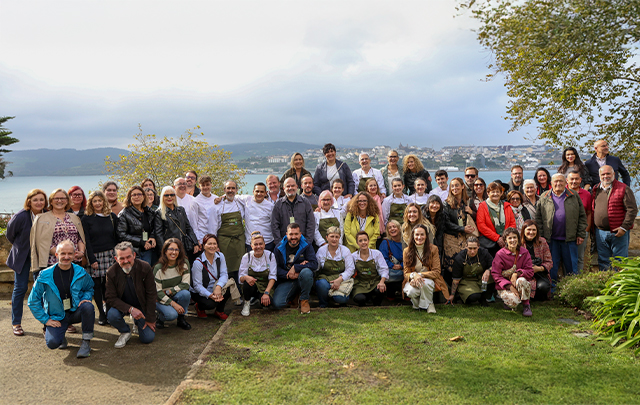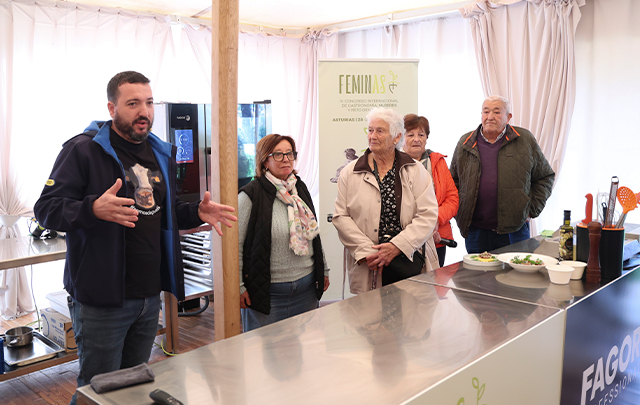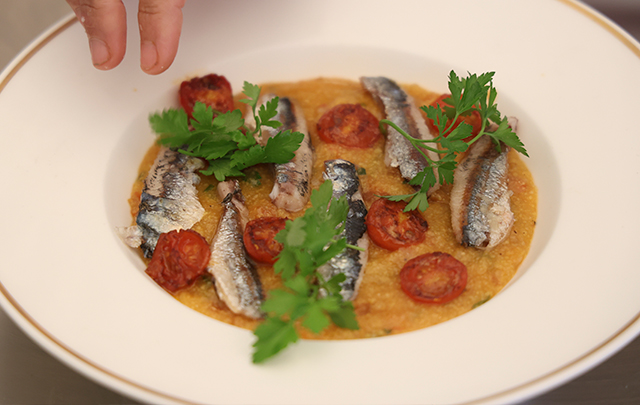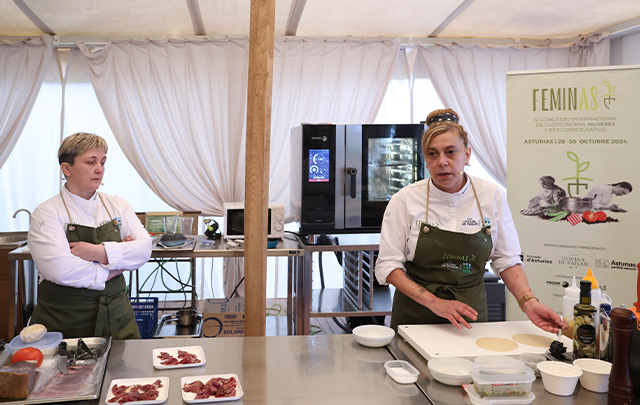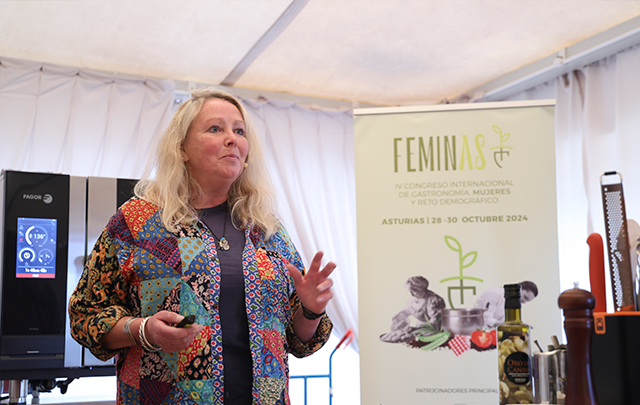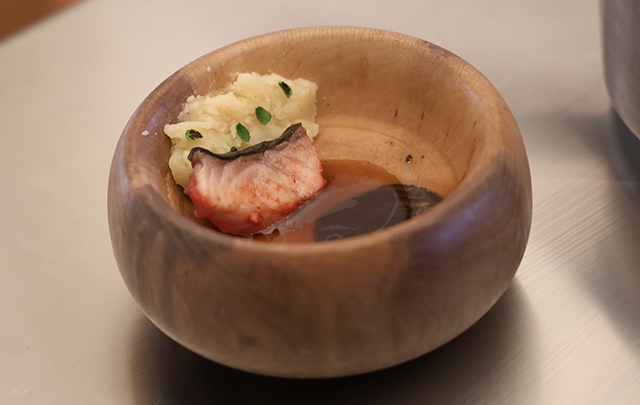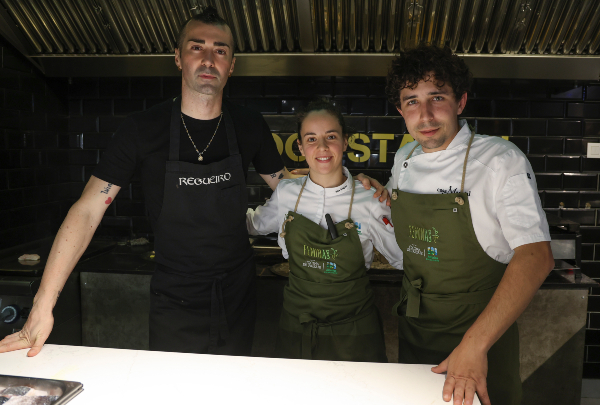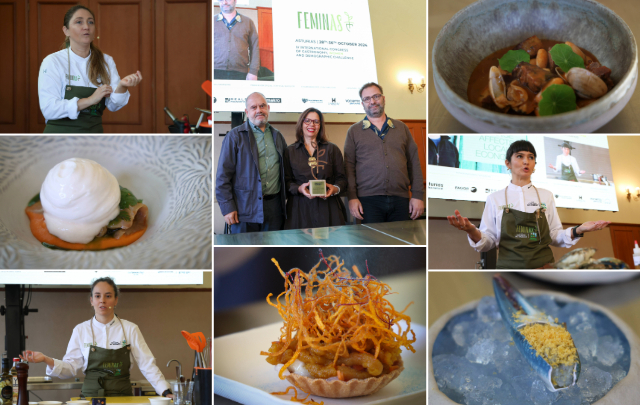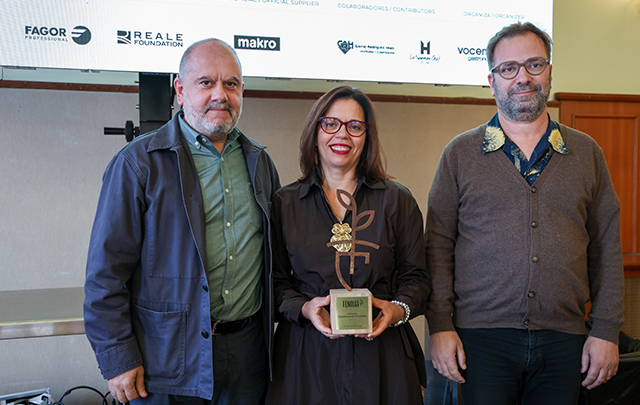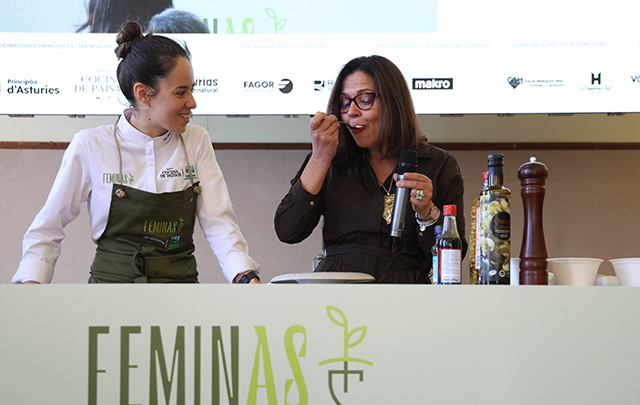News
"Two small farms tie the population to the territory more than one large one".
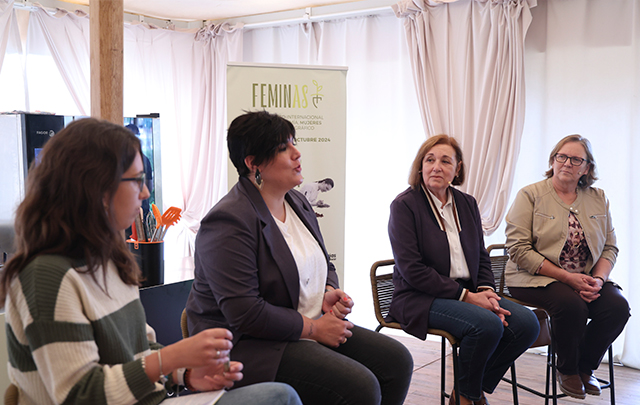
Three successful farmers put the finishing touches to the fourth edition of Féminas, calling for more facilities for a rural environment that has more advantages than disadvantages.
The production of milk and its processing has always been an activity carried out by women, although this is usually due to the obligatory family inheritance. Now that times have changed and the countryside is suffering from the effects of rural depopulation, the credit goes to the women who have chosen to get involved and even become entrepreneurs.
This is the case of Tatiana Álvarez, an administrator by profession, who, after a decade in the office, decided to go into livestock farming with her husband. This is how Ca Mamina was born, dedicated to the breeding of native Asturian breeds, mainly Gochu Asturcelta and Oveya Xalda, "with which we want to preserve the rural culture inherited from our ancestors, to keep our roots and fight for our traditions," she explains. Now that they have 100 animals, their profitability lies in "our business model, as we are producers and direct sellers, which allows us to offer a high quality product" aimed at restaurants and private customers. For Tatiana, who has always lived in the village, "it has been easy to adapt, although it would be easier if communication was better and we avoided wasting time travelling", she admitted. She argued that "it is essential to demand professional training in the trade, and also that children in schools are shown the activities related to their environment; if it is done well, livestock farming will have a future, because many may end up seeing it as a job opportunity," she concluded.
Mari Cruz Fernández was dragged into the industry by her brother, the founder of Ganadería San Martín, and has since become president of the Asturian rural cooperative Campoastur, an active member of the Spanish Association of Women Cooperatives and vice-president of Delagro, a cooperative that brings together cooperatives from Cantabria, Asturias and Galicia, a position she currently holds. I am now 50% involved in the company because I am not about to retire, although I would like to be younger so that I can carry on a little longer,' she says. Beyond the idyllic, she believes that "working hard and producing the best quality" are the fundamental tools to achieve profitability, and he is clear that "in the dairy sector, we are superheroes for producing milk at the price we do". She believes it is essential to "educate consumers so that they spend on milk what they spend on other products such as soft drinks", but she was pessimistic about the future of the industry, "which will decline if we don't unite on the Cantabrian coast and look for solutions, especially to promote generational change and the workforce", she argued.
For Marta Pérez, labour is the key to the future: "I work more hours than any external worker, and at the moment I have no one to replace me," she laments. She and her husband founded the Casa Flora livestock farm in the village of Otur, taking advantage of the fact that her in-laws had some cows, and 40 years later they have more than 500 cows and facilities equipped with modern technology. For us, innovation is fundamental and we invest in the latest generation solutions, such as the new milking systems that go right up to the cows when they are grazing and give us even the smallest details about their condition and the state of the milk," she reveals. For Marta, one of the biggest problems is bureaucracy - "they make us keep paper delivery notes for up to three years! -- and she calls on the administration to provide more facilities so that "we can make more use of our territory and not be so dependent on outsiders. Because when a farm closes, it never reopens, and the day there are no more cows, Asturias will cease to be green," she insists.


